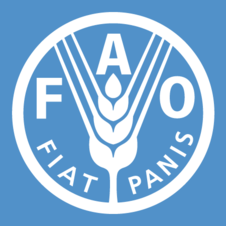Impacto del bajo consumo de alimentos con gluten y caseína sobre síntomas gastrointestinales en niños de 3-12 años de edad con trastorno del espectro autista.
DOI:
https://doi.org/10.29105/respyn16.3-1Abstract
Introducción: Los trastornos del espectro autista, presentan alteraciones gastrointestinales tales como diarrea, flatulencia, reflujo gastroesofágico y constipación las cuales se han relacionado con el consumo de dietas con gluten y caseína. Objetivo: Evaluar el efecto de la dieta sin gluten y caseína sobre síntomas gastrointestinales en niños con trastornos del espectro autista. Material y Métodos: Previo consentimiento del padre o tutor se evaluaron niños de 3 a 12 años de edad, aplicando una historia nutricional con datos antropométricos y dietéticos por frecuencia alimentaria; la permeabilidad intestinal se evaluó por el cuestionario de signos y síntomas gastrointestinales “brea King the vicious cycle”, intestinal health trhough diet, al inicio y final de la intervención durante 10 semanas. Donde se proporcionó menú semanal de acuerdo a recomendaciones calóricas por edad con alimentos libres de gluten y caseína. Los datos se analizaron por estadística descriptiva y pruebas no paramétricas utilizando Chi2 de dos variables, test de McNemar y prueba de Friedman utilizando el paquete estadístico SPSS versión 24.0. Resultados: Del total de 26 sujetos, 77% de género masculino y 23% femenino, con media de edad 7.6 + 2.6 años, se observó una disminución del consumo de alimentos con gluten y caseína a menos de tres veces por semana, lo cual aminora la presencia de distención abdominal, diarrea, flatulencia. Siendo la permeabilidad intestinal estadísticamente significativa (≤0.05) después de 10 semanas de intervención. Conclusiones: La disminución en el consumo de alimentos con gluten y caseína disminuye síntomas gastrointestinales asociados a permeabilidad intestinal.
ABSTRACT
Introduction: Autistic spectrum disorders present gastrointestinal disorders such as diarrhea, flatulence, gastroesophageal reflux and constipation, which have been related to the consumption of diets with gluten and casein. Objective: To evaluate the effect of the gluten-free and casein-free diet on gastrointestinal symptoms in children with autism spectrum disorders. Methods: After the consent of the parent or guardian, children 3 to 12 years of age were evaluated, applying a nutritional history with anthropometric and dietary data by food frequency; intestinal permeability was assessed by the questionnaire for gastrointestinal signs and symptoms "breaking the vicious cycle", intestinal health through diet, at the beginning and end of the intervention for 10 weeks. Where weekly menu was provided according to calorie-age recommendations with gluten-free and casein-free foods. Data were analyzed by descriptive statistics and non-parametric tests using Chi2 of two variables, McNemar test and Friedman test using the statistical package SPSS version. Results Of the total of 26 subjects, 77% male and 23% female, with a mean age of 7.6 + 2.6 years, a decrease in food consumption with gluten and casein was observed less than three times a week, The presence of abdominal distention, diarrhea, flatulence. The intestinal permeability was statistically significant (≤0.05) after 10 weeks of intervention. Conclusions: The decrease in food consumption with gluten and casein decreases gastrointestinal symptoms associated with intestinal permeability
Palabras Clave: Autismo, nutrición, gluten, caseína, autism, nutrition, casein
Downloads
References
Adams B. J., Johansen J. L. Powell D. L. Quig D. and Rubin A. R. (2011). Gastrointestinal flora and gastrointestinal status in children with autism comparisons to typical children and correlation with autism severity. BCM Gastroenterology, 11-22. DOI: https://doi.org/10.1186/1471-230X-11-22
Audisio, A., Laguzzi, J., Lavanda, I., Leal, M., Herrera, J., Carrazana, C., & Pintos, C. C. (2013). Mejora de los síntomas del autismo y evaluación alimentaria nutricional luego de la realización de una dieta libre de gluten y caseína en un grupo de niños con autismo que acuden a una fundación. Nutrición clínica y dietética hospitalaria, 33(3), 39-47.
Cabanyes-Truffino J, García-Villamisar D. (2004) Identificación y diagnóstico precoz de los trastornos del espectro autista. Rev Neurol.;39(1):81-90 DOI: https://doi.org/10.33588/rn.3901.2004098
Elder, J. H., Shankar, M., Shuster, J., Theriaque, D., Burns, S., & Sherrill, L. (2006). The gluten-free, casein-free diet in autism: results of a preliminary double blind clinical trial. Journal of autism and developmental disorders, 36(3), 413-420. DOI: https://doi.org/10.1007/s10803-006-0079-0
FAO/WHO/ONU. (2001). Human Energy Requirements. Food and nutrition technical report series. 20-32.
Ghalichi F. Ghaemmaghami J., Malek A., and Alireza O M. (2016). Effect of gluten free diet on gastrointestinal and behavioral indices for children with autism spectrum disorders: a randomized clinical trial. 2-7. DOI: https://doi.org/10.1007/s12519-016-0040-z
Gottschall E. (2004). Breaking the vicious cycle, intestinal health through diet.
Harris C. and Card B. (2012). A pilot study to evaluate nutritional influences on gastrointestinal symptoms and behavior patterns in children with autism spectrum disorder. Complementary therapies in medicine 20,437-440. DOI: https://doi.org/10.1016/j.ctim.2012.08.004
Horvath K. and Perman J. (2002). Austistic disorder and gastrointestinal disease. 14,583-587. DOI: https://doi.org/10.1097/00008480-200210000-00004
Lázaro C. P., Pondé M. P. and Rodríguez L. E. A. (2016). Opioid peptides and gastrointestinal symptoms in autism spectrum disorders. Revista Brasileira de Psiquiatría 6; 38:243-246. DOI: https://doi.org/10.1590/1516-4446-2015-1777
Organización Mundial de la Salud. (2008).Curso de capacitación sobre la evaluación del crecimiento del niño. Ginebra.
Pedersen L. Parlar S., Kvist K, Whiteley P. and Shattock P. (2014) Data mining the ScanBrit Study of a gluten-and casein- free dietary intervention for children with autism spectrum disorders: behavioral and psychometric measures of dietary response. 5,207-213. DOI: https://doi.org/10.1179/1476830513Y.0000000082
Pennesi M. C. and Cousino K. C. (2012). Effectiveness of the gluten-free, casein-free diet for children diagnosed with autism spectrum disorder: Based on parental report Nutritional Neuroscience. 15(2): 85-91. DOI: https://doi.org/10.1179/1476830512Y.0000000003
Salles T. T. F. S., Boroni M. A. P., Silva S. N. C. Frias R. and Gouveia P. M. C. (2014) Intestinal permeability measurements: general aspects and possible pitfalls. Nutr Hosp. 29 (2): 269-281.
Toh C., M., and Allen V. E., (2015). The Microbiome in Autism Spectrum Disorder. The human gut microbiota with reference to autism spectrum disorder: considering the whole as more than a sum of its parts. Microbial Ecology in Health and Disease. 26. DOI: https://doi.org/10.3402/mehd.v26.26309
Villatoro M., V., Rodríguez V. G., y Pardo P. A., (2015) Trasplante de microbiota fecal: revisión de la literatura y reporte del primer caso en el Hospital Central Militar. Rev. Sanid Milit Mex. 69, 242-248.
Whiteley P., Shattock P., Knivsberg A. M. Seim A., Reichelt K. L., Todd L., Carr K. and Hooper M., (2013). Gluten- and casein-free dietary intervention for autism spectrum conditions. Frontiers in Human Neuroscience.6, 344. DOI: https://doi.org/10.3389/fnhum.2012.00344
World Health Organization. (1995). Physical Status: The use and Interpretation of Anthropometry.161-255.
Downloads
Published
How to Cite
Issue
Section
License
The rights of the work belong to the author or authors, however, by sending it for publication in the Public Health and Nutrition Magazine of the Faculty of Public Health and Nutrition of the Autonomous University of Nuevo León, they grant the right for its first publication in between electronic, and possibly, in print to the Public Health and Nutrition Magazine. The license used is the Creative Commons attribution, which allows third parties to use what is published whenever the authorship of the work is mentioned and the first publication that is in the Public Health and Nutrition Magazine. Likewise, the author or authors will take into account that it will not be allowed to send the publication to any other journal, regardless of the format. The authors will be able to make other independent and additional contractual agreements for the non-exclusive distribution of the version of the article published in the Public Health and Nutrition Magazine (e.g., institutional repository or publication in a book) provided they clearly state that The work was published for the first time in the Public Health Magazine, Magazine of the Faculty of Public Health and Nutrition of the Autonomous University of Nuevo León.














